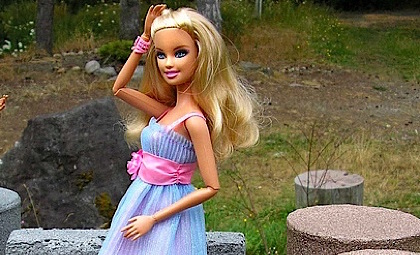
Our contributor Chloë Browne, who’s pursuing an Honors Major in Gender and Sexuality Studies at at Swarthmore College, has a confession to make:
A few weeks ago I was at a bar with some friends when a guy started chatting me up. He asked me what my major was, and when I told him I was a Gender and Sexuality Studies nerd, he immediately balked, calling over his shoulder as he walked away, “False advertising much?!”
What he meant was, “You don’t look like a hardcore feminist.” Which begs the question, What does a hardcore feminist look like? Considering how often I get this same reaction from people (albeit with a slightly less douchey delivery), it would seem there’s one mold out there and I unequivocally don’t fit into it.
For as long as I can remember, I have had a deep and reverent regard for nearly everything traditionally associated with glitzy consumerist American girliness. On a family vacation when I was four, a cousin introduced me to the wondrous world of Barbie, immediately and effectively undermining years of my mother’s hard work to keep me unaware of their tanned, toned, augmented, and beautified existence. There she was in all her plasticized glory, gorgeous and sexy and taboo (thanks, Mom) and I was hooked. From that moment on, high heels, makeup, and general glamorizing became a source of hours of entertainment, and though the accoutrements have increased dramatically in size in the years between my adorning Barbie and my adorning myself, my fascination has remained something of a constant.
For just as long, though, I’ve had a deep sensitivity to issues of sexism and the gendered aspects of living in today’s world. What began as an early commitment to girl power (not of the Spice Girls variety, though — mom did succeed on that front) soon morphed into a precocious feminism. My Barbie didn’t take shit from Ken and I didn’t take shit from classmates.
My vocal stances on gender equality in and out of the classroom often baffled my more traditional, conservative, Southern peers. My speaking out on gendered themes in Tuck Everlasting while tottering around in the pale pink kitten-heeled flip flops that were (bafflingly) all the rage among my 8th grade class had my classmates calling me a lipstick lesbian long before I understood the phrase or frosted my lips with anything more than Bonnebell glitter gloss.
Similar issues persist in my day-to-day life now. People hear that I’m a rugby-playing Gender and Sexuality Studies major and pretty quickly draw up a set of assumptions about who I am, what I look like, and who I sleep with. Others see me walking around in a flouncy dress, heels, and a ponytail and immediately think: nice, traditional, knows-her-place girly girl. The incongruity that people assume exists between how I look and how I think has me constantly defending my choices, my appearance, and my politics not only to my fellow gen-sex students and the occasional bar fly, but to myself as well.
I’ve been forced to really think about what feminism, femininity, and gender mean to me. Feminism is about choice, the valuing of and striving towards a world in which women are free and able to make well-informed choices about all aspects of their lives. Respecting and valuing the choices women — and men — make about their own bodies and appearances is integral to that definition, no matter how much lip gloss is involved. After all, femininity has nothing to do with some essential way women are, it’s just a tidy category name to put on those things typically considered girly. And gender, rather than being two static and narrowly defined polar opposites, is a fluid continuum, with individuals — both male and female, gay, straight, bisexual or transgendered — finding their own unique place on it. As such, the choices we make about how we externally express our gender identity can be neither inherently feminist nor inherently non- feminist. Rather, the expression of, comfort with, and celebration of our own diverse identities is the political act.
And, I have to admit, I love the little glimmer of surprise I can detect in people’s eyes when they first put my interests and my physicality together. The novelty factor they seem to attribute to me really excites me. I love that just being myself can be a little shocking, a little subversive. And it turns me on that I get to decide when that flicker of recognition — or shock, or arousal — happens.
Don’t get me wrong. My feminism is not just some affect adopted for novelty factor. It’s not a coquettish gimmick a la Coyote Ugly. And my particular presentation/belief juxtaposition is not a politically motivated mind game. But I do think there’s an important social comment latent in the unfortunate “aha!” moment of those around me. No matter how many pop-culture phenomena, how many websites, heck, how many t-shirts argue differently, many people — both within and outside of the feminist movement — have a pretty rigid idea of what exactly a feminist looks like. And disrupting that, if only for a fleeting and sometimes douchey moment of exchange, has, to me, an inherent value: not only personally demonstrating that feminism lives and breathes vibrantly in all parts of our society, but also firmly proving that there’s no one right way to be a feminist…that there’s no one right to be, period.
Here’s the thing. I believe strongly in the old-school, sisterhood-making feminist mantra: the personal is political. The personal pleasure that I take from feeling like sex on a stick (an autonomous, equality-seeking stick) when I slip on a pair of killer pumps is to me a political stance. On some level, I’m looking to cause a double take. I feel good, I feel sexy, I feel desirable, I feel powerful, and I feel I have every right to feel that way. I love high heels and cosmetics and Secret Diary of a Call Girl (Belle de Jour is a total grown up Barbie) and treat my boyfriend with the occasional after-work surprise, both culinary and carnal. These traditional trappings of femininity are, to me, personally empowering. They make me feel like myself.
But what I really value is the fact that feminism has allowed me to enjoy these things critically; I am fully aware that until very recently such things functioned oppressively (and, according to some people, still do), but I believe women now have the opportunity to choose to enjoy them — and that makes all the difference.











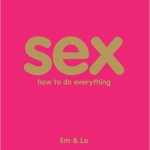
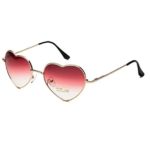
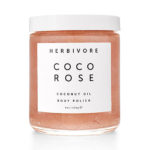
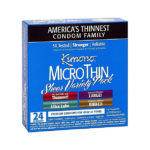


I’m so happy to have found this to read because I too have encountered strange glances and hostile behaviour not only in the feminist community but also outside of it because I have strong believes and also adore my high heels and make-up all the while sleeping with women and not men.